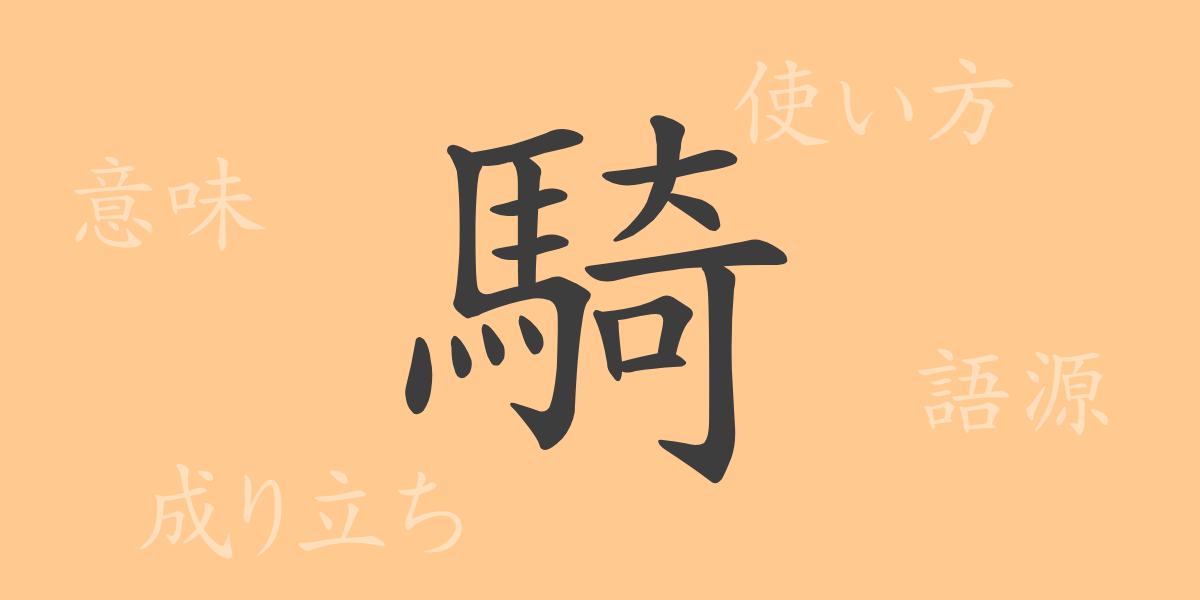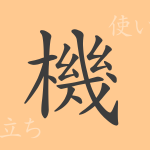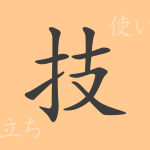Japanese written culture is profound, with history etched into each kanji character. The common-use kanji “騎” (ki) is no exception. This article delves into the origins, meanings, usage, and even idioms and proverbs related to “騎” (ki), uncovering its charm. Evoking the image of riding a horse, how is “騎” (ki) used in daily life and what impact does it have? Let’s embark on a journey to explore this.
Origin of the Kanji “騎” (語源)
The kanji “騎” (ki) originated in ancient China as a character meaning to ride a horse. Its form symbolizes a person mounted on a horse. In the ancient script known as oracle bone script, it depicted the shape of a person on horseback more clearly, and over time it simplified into its current form. This kanji was introduced to Japan around the 5th century, blending with Japanese culture and language.
Meaning and Usage of “騎” (ki)
The primary meaning of “騎” (ki) is to ride a horse, or it refers to people or things associated with this action. For example, “騎手” (kishu) means a jockey who rides a horse in races, and “騎兵” (kihei) refers to soldiers who fight on horseback. Additionally, it is used metaphorically to mean overcoming or mastering something. In modern times, since horse riding is not common, it is often seen in metaphorical use or specific idioms.
Reading, Stroke Count, and Radical of “騎” (ki)
The kanji “騎” (ki) is used in various ways in the Japanese language, and its basic information is as follows:
- Reading: The on-yomi (Chinese reading) is “キ” (ki), and there is no kun-yomi (Japanese reading).
- Stroke count: 18 strokes in total.
- Radical: The radical is 馬 (うまへん, uma hen, meaning horse).
Idioms, Proverbs, and Expressions Using “騎” (ki)
Idioms and expressions that include “騎” (ki) are diverse due to its imagery and origins. For example, “騎士” (kishi) refers to a noble warrior in medieval Europe, known as a knight in English. “一騎当千” (ikki tōsen) is a proverb meaning one warrior is as strong as a thousand enemies, used to praise a very strong person. “騎兵隊” (kiheitai) refers to a group of mounted soldiers and appears in historical contexts or stories. These idioms and expressions reflect the imagery and history associated with the kanji “騎” (ki).
Summary on “騎” (ki)
The meanings embedded in a single kanji character mirror the culture and history of a country. “騎” (ki) not only refers to the act of riding a horse but also symbolizes strength, dignity, and sometimes adventure and freedom. As a common-use kanji in Japan, “騎” (ki) continues to live in our language today. Through its usage and expressions, we convey messages from ancient times to the present.

























